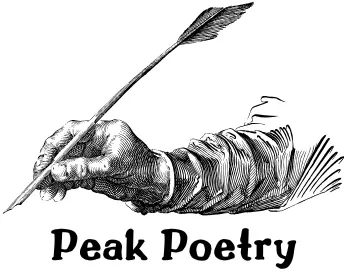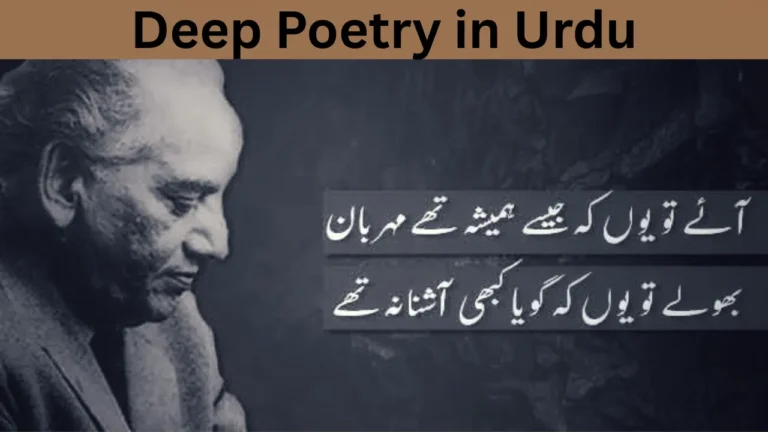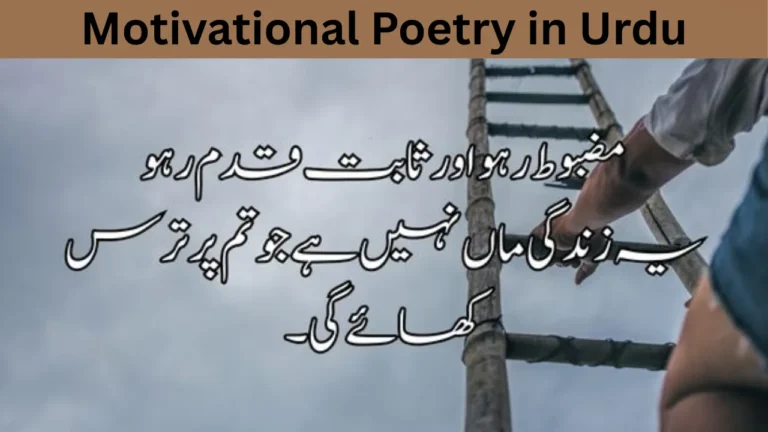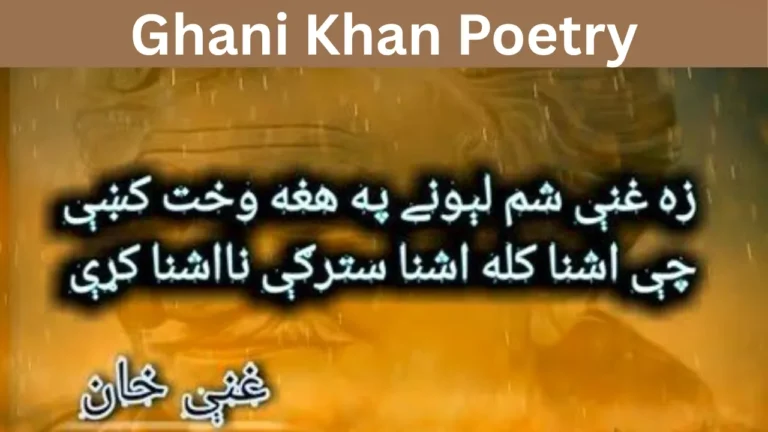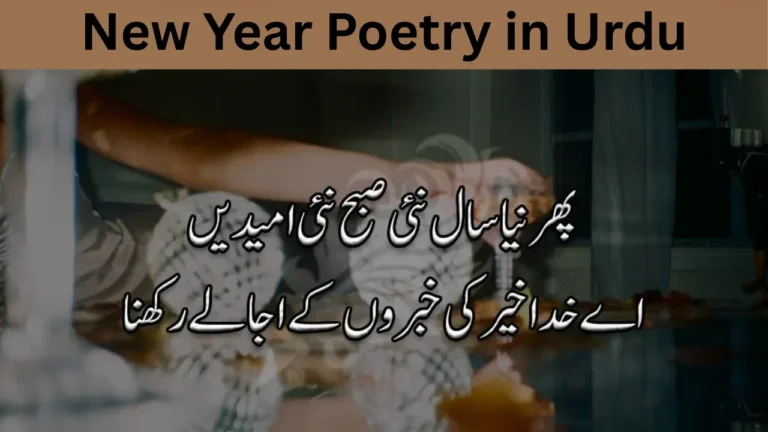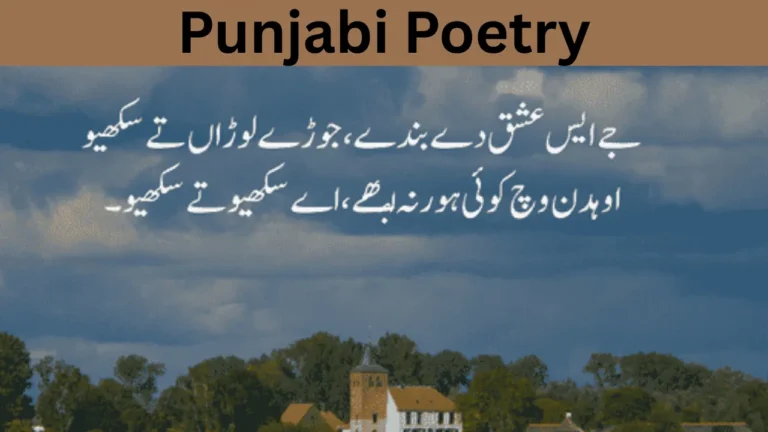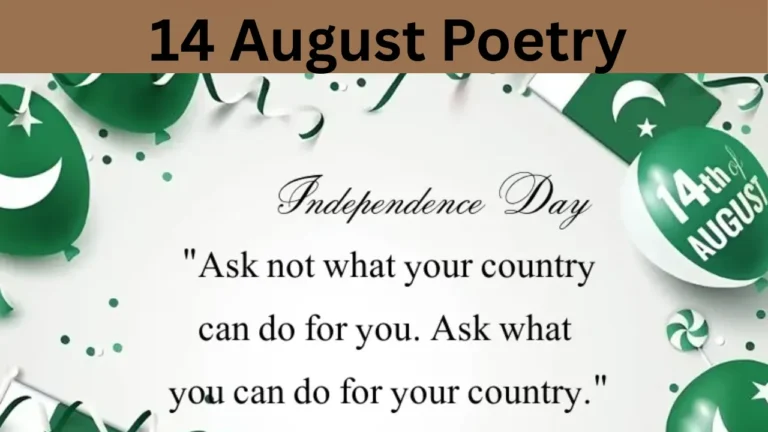Saraiki Poetry Soulful Words and Cultural Richness
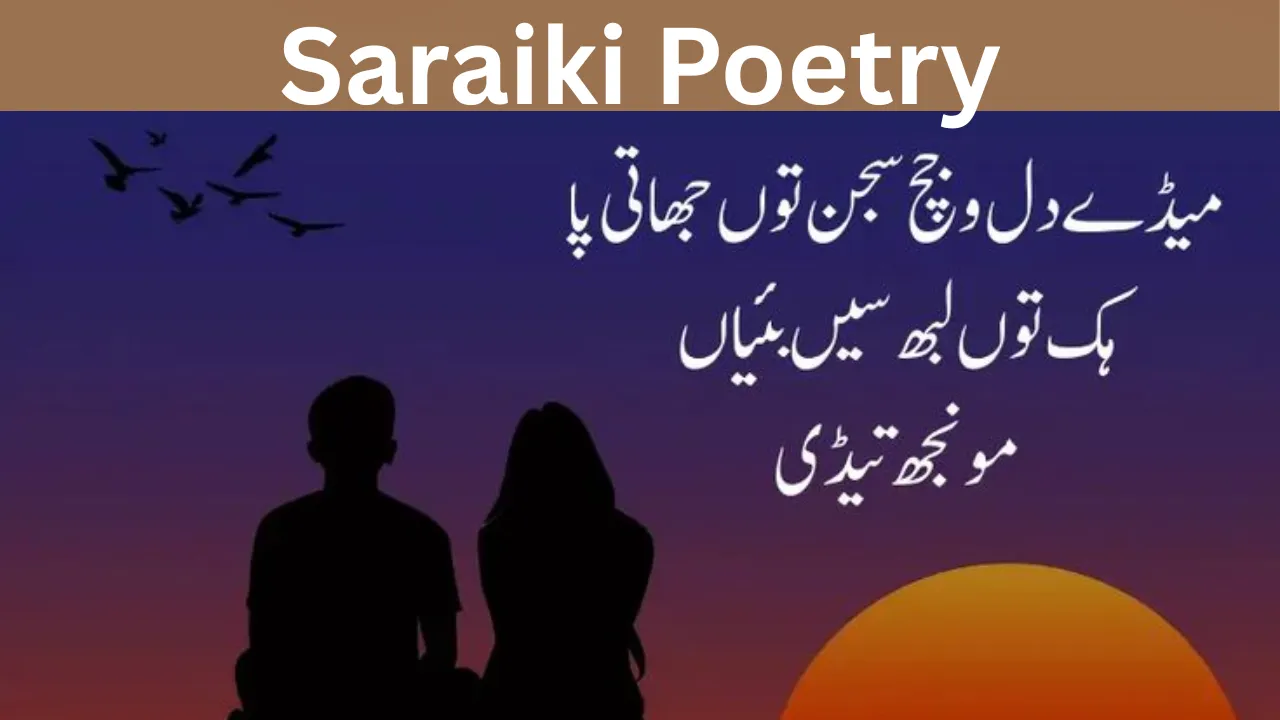
Saraiki poetry is more than words. It is a musical heartbeat of South Punjab, echoing love, pain, Sufism, and rural life. From ancient verses to modern-day resistance, these poems capture the soul of a people proud of their roots.
Just like “Dosti Poetry The Soulful Bond of Friendship in Verses” shows how words can reflect strong emotional bonds, Saraiki poetry carries a legacy of feelings passed down through generations.
Let’s explore how this magical language of expression continues to inspire millions today.
The Origins of Saraiki Poetry
Saraiki poetry has ancient roots. It developed alongside Sufi traditions and folk music in the heartlands of Multan, Bahawalpur, and Dera Ghazi Khan. Poets used it to preach love, tolerance, and peace.
Kafi is the most recognized poetic form in Saraiki literature. Many poems were sung in spiritual gatherings, connecting the human soul with the Divine.
2-Line Poetry Samples:
ویکھے وسیب دا سچ، دل دے اندر دی گل اے
ساہ وی لبدا اے اوہ، جیہڑا رب نال پل اے
مندر مسجد دا کیہہ سوال، دل وچ رب نوں ویکھ
ساڈی بولی دا حسن اے، ہر لفظ وچ اے لیکھ
عشق دے راہواں وچ، رُل گئے عاشق کئی
سچ نوں جھوٹ سمجھ بیٹھے، لبھیے کیہہ ونجلی دی لَئی
پردیسی ہویا ساہ وی، رب نوں پکارے ناں
کسے دی آنکھ وچ وسدے، کسے دے دل وچ فسان
بولی دے وچ بولیا، اوہ درد جیہڑا نا لبھے
ساڈی شاعری وچ اے سچ، ساڈی بولی ناں کبھے
مٹی دی خشبو نال، لکھے وسیب دے راہ
ہر اک سطر وچ لبھی، ساڈی جان دی پناہ
Sufi Influence in Saraiki Poetry
One of the strongest influences in Saraiki poetry is Sufism. Sufi saints used poetry to teach love for God, humanity, and truth. Their verses were rich in symbols and emotions, calling people towards a spiritual life.
Khawaja Ghulam Farid, the greatest Saraiki poet, used the desert as a metaphor for love and longing. His poems are deeply spiritual.
2-Line Poetry Samples:
چنچل چاندنی راتاں وچ، ساڈی روح روان دی گل
فرید دے کافیاں وچ اے، رب نوں ملن دی حل
عشق رب دا اے جگ سارا، ساہ نال وسدا اے
سچ دی راہ تے چلیا، اوہی منزل دسدا اے
من دی کھوج وچ وسیا، سجن فرید دی بولی
کافیاں دی صورت رب لبھیا، روہی دی اے کھولی
درد وچ لبھی خوشبو، نعت وچ رب نوں جانیا
ہر مصرے وچ وسدا، اوہ عشق جیہڑا بانی اے
فرید بولے، عشق بولے، درد دے نال راہ
سانجھاں دے وچ سجدے، رب دے ہون دی چاہ
عشق نوں سمجھی نہ سکیا، جیہڑا لفظاں وچ وسیا
ساڈی کافیاں وچ لبھے، اوہ جیہڑا رب دے نال ہسیا
Folk Culture in Saraiki Poetry
Folk life is at the core of Saraiki poetry. From harvest dances to village tales, poets express the beauty of daily life in rural Punjab. Traditional symbols like “rohi” (desert), “sanjh” (evening), and “mela” (festival) bring life to each verse.
Saraiki folk poetry often uses simple words but deep emotions. It celebrates human relationships, hard work, and seasonal joy.
2-Line Poetry Samples:
کھلی ہوا وچ وسیب بولے، میٹھی زبان دے نال
ساہ نال ملی اے مٹی، ویخے ہر کوئی کمال
روہی دے وِچ وسدے، سپنے سچ کرن والے
وسیب دیاں گلیاں وچ، ہونسلے نال نالے
ہار دا میل اے زندگی، ہر راہ دا سنگ اے
وسیب دی مٹی وچ لبھی، سکون دا رنگ اے
میلے ٹھیلے، ہنسی خوشی، ہر پل وچ بہار
ساڈی بولی بولے پیار، ہر درد دا اے چار
ڈھول تے نچن والیاں نوں، ساہ نال لبھیا پیار
فصل دی خوشبو آوے، وسیب کرے پکار
ندی نالے، کھیتاں والی، ہر گَل وچ اے جان
لوک گیت بولے ساچ، ہر وقت وسے پہچان
Modern Voices in Saraiki Poetry
Modern poets use Saraiki poetry to speak about poverty, injustice, identity, and hope. Poets like Shakir Shuja Abadi have revived interest in Saraiki literature by connecting with younger audiences and social themes.
2-Line Poetry Samples:
ساڈی آنکھاں وچ وسدا دکھ، ساڈی بولاں وچ پیار
شاکر دے حرفاں وچ لبھی، عام بندے دی کار
زبان بن گئی اے خاموشی دی، جیہڑی گل نہ کہی
ساڈی شاعری وچ لبھی، اوہ سچ جیہڑا رہ گئی
غربت دی تصویر، ہر اک مصرے وچ وسے
ساڈی زبان بولے، سچ دے وچ ہی رسے
روٹی دی خواہش وچ، بندہ کھو بیٹھا پیار
لبھیا نی جیہڑا انصاف، اوہ ہویا لاچار
شاکر بولے دکھ دیاں، بولی وچ سسکیاں
ہر حرف دا درد، وسدا اے نس نس وچ
لفظاں وچ سانس لبھی، بولے اوہ ناں لبھی
ساڈی شاعری وچ جیتے، اوہ لوک جیہڑے ہارے
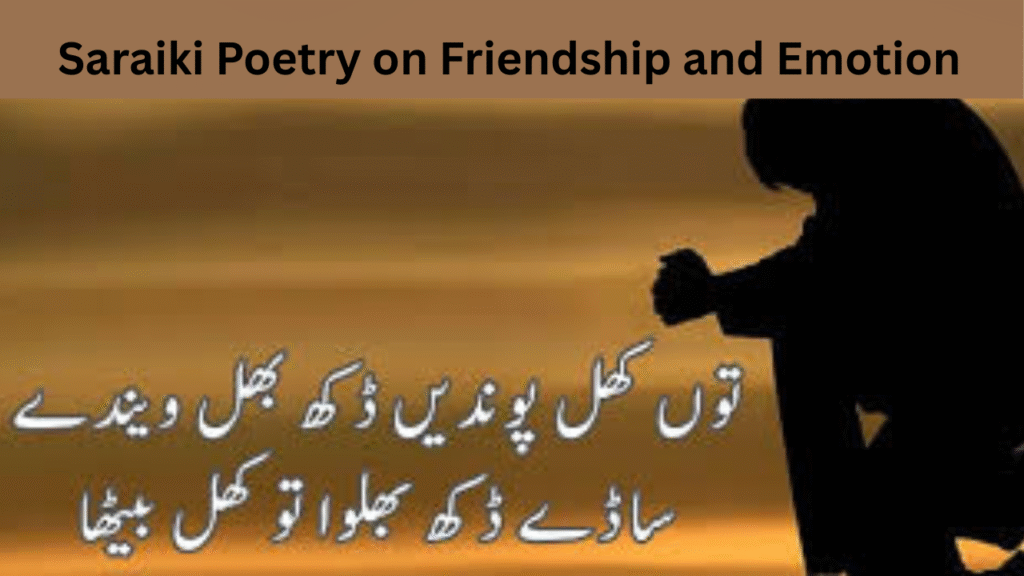
Saraiki Poetry on Friendship and Emotion
Saraiki poetry expresses loyalty, brotherhood, and the value of relationships with unmatched purity. These verses are often shared during gatherings, weddings, or festivals to express heartfelt emotions.
2-Line Poetry Samples:
یار دی گل کریے سچ دی، ساہ نال جیہڑی وسے
دوستی اے سچائی دی روشنی، ہر ویلے ساڈے رسے
ساڈا یار اے ساہ ورگا، ناں ہوئے تے دم گھٹے
دوستی دی اے خوشبو، ہر رشتہ نوں لبٹے
یار نوں نہ وساریں، چاہے دنیا پلٹ جائے
سچے یار دی پہچان، دکھ وچ وی نہ گھبرائے
سجن دا ہسیا چہرہ، ساڈی راتاں دا چند
دوستاں نال ہوندی اے، دل دی ہر گل بند
دوستی دے وچ لبھی، رب دی رحمت دا نور
یار نال جیون سونا، اوہ نہ ہوئے تے دور
ساڈی بولی وچ پیار، یار دے نال سوار
ہر دوستی دی قدر کریے، رب دا اوہ تحفہ یار
Role of Saraiki Poetry in National Identity
Saraiki poetry has also played a patriotic role, especially during important national days. Poets write verses for 14th August, promoting unity and honoring sacrifices. It brings regional pride and national love together.
This mirrors what “14 August Poetry Celebrating the Spirit of Freedom Through Words” does—bridging passion with patriotism.
2-Line Poetry Samples:
ساڈی زمین دی خوشبو، آزادی دی اے پہچان
چوداں اگست دے جشن وچ، وسدا اے ہر اک جان
وطن دی مٹی بولے، ساڈے ساہ نال لبھی
پرچم دی چھاں تھلے، لبھی رب دی سبھی
ساڈی شاعری وچ وسدی، قربانی دی کہانی
ہر مصرعہ وطن دے نال، بن جائے نشانی
آزادی اے ساڈی جان، لبھی ہر اک گیت وچ
قومی ترانے دے وچ، وسدا اے ساڈا ریت وچ
زبان اے ساڈی پہچان، پرچم اے ساڈی شان
ساڈی بولی وطن نال، اے ساڈی جان دی جان
لال، سبز دا پیغام، ساڈی شاعری وچ عام
وطن دی شان وچ لکھے، ساڈی بولی دے نام
Conclusion
Saraiki poetry is the soul of South Punjab—it sings of love, faith, pain, and the bond between people and land. From Sufi mysticism to modern resistance, its verses reflect centuries of emotion and experience. Whether spoken in a desert gathering or shared online, Saraiki poems connect hearts across generations.
Its rich metaphors, sweet dialect, and heartfelt messages make it more than just regional art—it’s Pakistan’s poetic heritage. As we read these two-line gems, we preserve the voice of a culture that continues to inspire, heal, and unite.
ساڈی بولی وچ اے رب، ساڈی شاعری وچ پیار
ویخے جو وی دل نال، لبھے اوہدا یار
ہر شعر وچ اے حقیقت، ہر لفظ وچ اے درد
ساڈی شاعری دے نال، وسے امن دا پرد
In every Saraiki verse, there lives a story—simple yet powerful—just waiting to be felt. Let that voice never fade.
